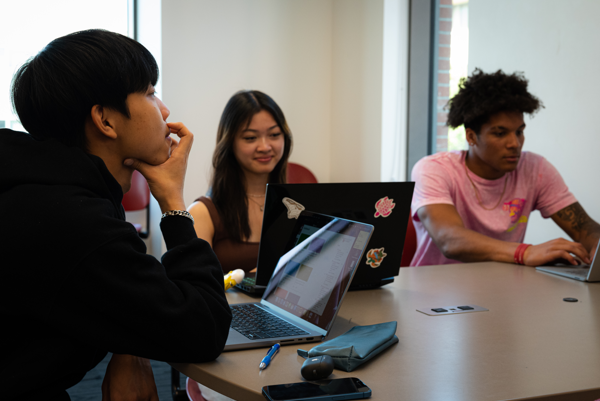Interested in contributing to this project as an author? You can get a first feel for our work by checking out the modules themselves! Then, read more about the values, principles, and structure that guide our module design, as well as our production process and how to submit your proposal in the following FAQ.
- What are the values guiding this project?
- What is a Module Ready to Educate (MRE)?
- What is the pedagogical framework of a module?
- What is the structure of a module?
- Are modules peer reviewed?
- What is my next step?
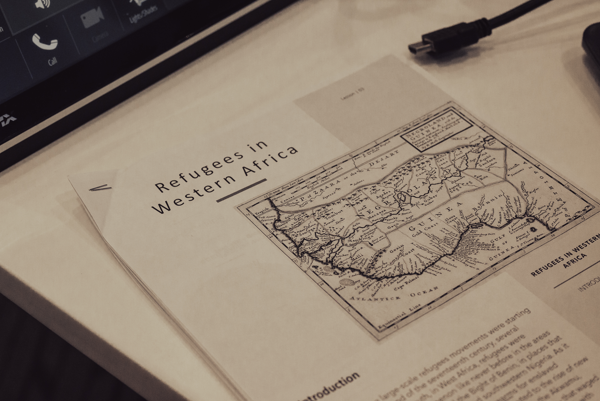
What are the values guiding this project?
At History for the 21st Century, we believe history is important to the 21st-century United States and the world, both for its subject matter and the skills it invokes. To construct their roles as members of an engaged society and citizenry, students need the skills of critical analysis, communication, and the ability to build and maintain connections with a diverse range of other people. History, as a discipline, is well positioned to foster all of these.
Our goal is to support college and university faculty to introduce 21st-century students from diverse backgrounds to the study of history at the introductory level, while at the same time supporting faculty in effective pedagogy and curriculum design strategies. Our project..
- Promotes active learning that is student-centered and inquiry-driven in order to open doors to student ownership of their learning.
- Produces teaching materials that challenge, disrupt, and reorient existing historical narratives, so that all students are empowered to see themselves and their ancestors within historical narratives that provide meaning for them in their present and future.
- And provides those teaching materials free to students and faculty alike, in order to lower financial barriers to that learning.
First, we believe that students learn better when they are actively involved in their own learning, and that every student contributes experiences and assets to the classroom that can help them to participate and to teach each other. As instructors, we are just as interested in understanding what students bring to our courses as well as what they leave with, and design curriculum and practice pedagogy aimed at mobilizing active and collaborative learning within our classes, regardless of their size or format.
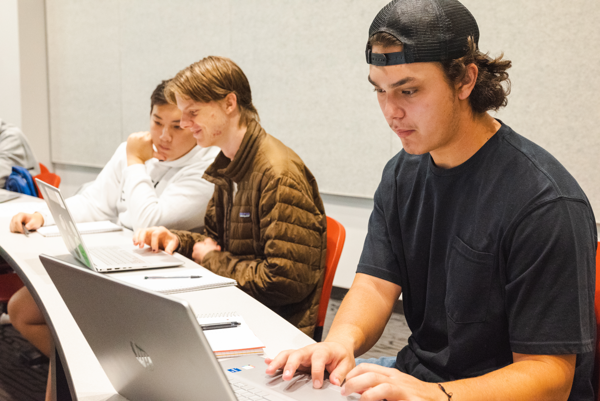
We also believe the classroom should be an equitable space, where every student is able to find a connection between themselves and the course materials and have opportunities to share those connections with others. Our materials help instructors teach essential disciplinary concepts through lenses that embrace the diverse range of human experiences, including centering peoples commonly de-centered in or absent from historical narratives.
To help reduce barriers to learning and course materials for students and teachers alike, H/21 provides access to all of our materials at no charge. Our on-demand, student-centered lesson plans are open access – authors assign all rights to these materials to H/21. Furthermore, we strive to facilitate a community of practice that provides support for instructors and that can improve our collective efficacy as teachers. Our lessons offer more than content by providing suggestions for how to teach effectively, as well as avenues to collect feedback from students and faculty alike to continue to improve. All of our materials undergo peer-review, and we welcome comments, suggestions, and modifications as instructors discover and share what works for each of us. As a collaborative community, authors should be willing to let evidence-based feedback stimulate modifications to their MREs.
What is a Module Ready to Educate (MRE)?
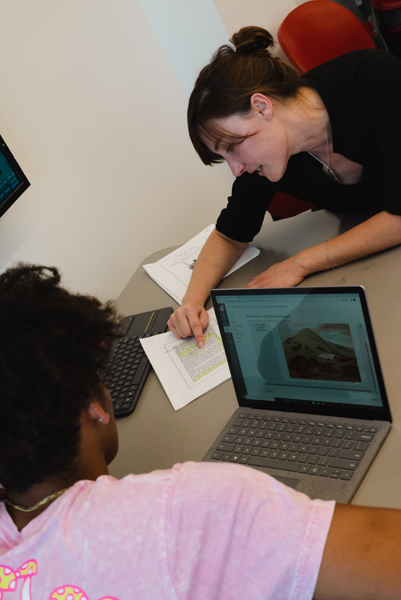
A Module Ready to Educate (MRE) is a complete, inquiry-based, and digitally available educational curriculum covering roughly two weeks of class time. Our modules aim to teach both skills and historical content, and include all of the materials an educator and their students will need, including readings, primary sources, and suggestions for activities and assessments, as well as guides for teachers to support their use of the material in class. Our modules:
- Are designed for college-level students in General Education and introductory history courses.
- Engage students in active learning, even within large-class settings.
- Include content, primary sources, activities, and assessment tools that faculty at a variety of institutions can adapt to the courses they offer.
- Engage with the diverse range of human experiences, including going beyond standard world historical narratives and centering peoples commonly de-centered in or absent from those narratives.
- Help students practice historical learning and consciousness in ways that connect to the present world, and can contribute to a sustainable and equitable twenty-first century.
- Are peer-reviewed by content experts, vetted by experienced educators, and capable of revision based on future evidence.
- Are limited to short, two-week lesson plans, adaptable to a M-W-F or T-Th schedule.
- Are made available to faculty and students at no charge.
What is the pedagogical framework of a module?
H/21 modules not only aim to support student learning but also to help fellow educators improve their practice. For that reason, we encourage authors to follow a backwards design strategy, in which they identify the key lesson or question they wish the module to tackle.
Modules should then follow an inquiry-driven model of pedagogy, beginning by posing questions, or ‘historical problems’ and providing both students and their instructors with the tools and materials to respond to those problems. The goal is that students participate in the process of building curiosity, asking good questions, and generating answers that have meaning for their lives.
When designing modules with a student-centered approach, authors should consider where the module might sit within course-long, and possibly life-long skills progressions for students. Models should provide ways for students to do work that is not only accessible and level-appropriate, but that also allows them to build and apply their critical thinking and communication skills through activities that are meaningful for them.
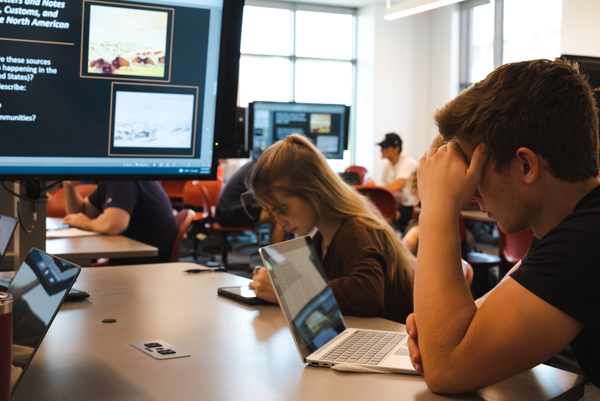
What is the structure of a module?
Potential authors can get a good feel for the structure of our teaching materials by checking out our existing modules. Each of our modules contain:
- A module overview and introduction for instructors that includes an explanation of the module’s content, as well as the problem(s) that students will examine via inquiry.
- A day-by-day lesson plan for two weeks, adjustable to a two- or three-class per week model of interactive teaching and learning.
- An introduction for students, centering their activities and experiences within the module.
- Short readings for each lesson of the module, written by the authors and suitable for introducing students to the necessary content for that lesson.
- Primary source(s) for use in interpretation and inquiry.
- Suggested images, maps, or other accessible visual materials.
- Suggestions for classroom activities and discussions, including ideas for adjustment depending on the type of class or institution.
- Suggested assessments, including prompts that are both:
- Formative – helping students acquire and develop knowledge and skills and instructors to measure their progress early in the module, and
- Summative – helping students integrate and demonstrate understanding) at the end of the module.
- Instructor-facing guides to help orient educators to the lessons, activities, discussions, and assessments, and provide them with ideas for planning class meetings.
- A short bibliography of up-to-date scholarship on the topic.
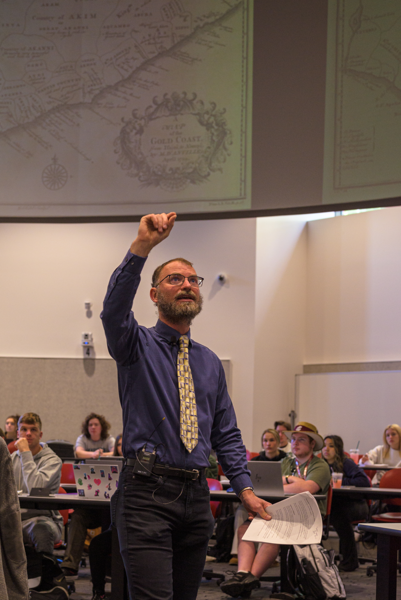
As the author of a module, you will write the secondary source readings, including introductory materials, lesson readings, and a conclusion, as well as identify all additional materials (primary sources, videos, etc.) for inquiry yourself. Though you may use any public domain materials, through our strategic partnerships we also have free access to adopt materials from two sites in particular:
- The OER Project (https://whp.oerproject.com/) – Most of these are essays, articles, and source collections aimed at high school students, but a great deal of the material is appropriate for our students or can be adapted to your course. You will need to register to view these materials, but once you identify materials you wish to adopt as-is or adapt to your module, we can generally obtain them.
- World History Commons (https://worldhistorycommons.org/) – This collection of primary sources, methodological essays, and other resources is open and available. We can also work with their editors to make sure adoption is smooth.
As you are working on your contribution, please be sure to keep track of the sources of texts, images, and other non-original items, including their URL and use permissions. Once in the production stage, we will also ask that contributors identify some open-source images to facilitate module design – however, our staff will help you with this in those later stages of module development.
Yes! Modules go through several phases of editorial review: first, modules are commissioned and created by the author; upon completion, they undergo peer-review and revision, and are then tested in classrooms. Once final revisions are made to the module, they are put into production (including design, copy-editing, and copyright clearance) prior to publication.
Throughout this process the leaders of H/21 collaborate with authors to ensure MREs fit the values, pedagogical practice, and goals of the project, and that contributions are suited to a first-year, General Education classroom. Following publication, they may be modified or expanded through the participation of our colleagues in the broader community of practice.
If you haven’t already, please be sure to check out our existing modules. Then, consider what contributions you may like to make to our library.
After you have let your ideas percolate, please check out our Call for Proposals and send your proposal to us at info@history21.com so we can begin a conversation about becoming an author!
